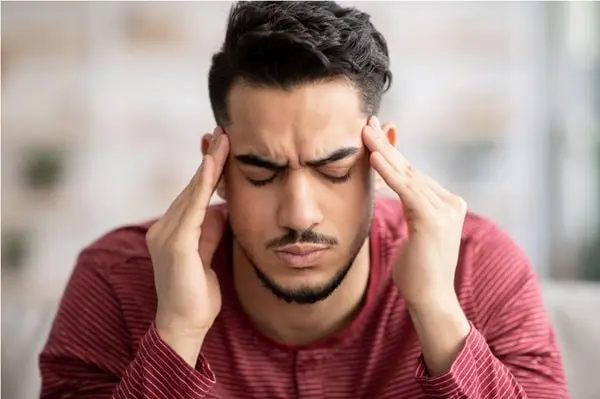If you live with migraine, one of the best things you can do is identify your personal triggers. The purpose of identifying triggers is not avoiding them; instead, understanding what they are and how they affect you is the first step.
What is a Trigger?
Specific external or internal stimuli that sometimes provoke a headache are called triggers.
The migraine attacks may start anywhere between six hours and two days after the trigger happens.

Keeping a migraine diary may help you to find out what triggers migraine attacks. You may notice a pattern of things that may take place two days before the migraine attack.
You can make a note of things like:
- What are your eating habits
- Menstrual cycle
- Activities and changes in environment or weather
- What and how much amount of medicine you take to relieve the pain
- When you have bowel movements
- Routine things you do, like watching TV and going to sleep.
There Are Eleven General Categories of Triggers
Change in routine
Routine changes like food type, timing of eating food, and eating less or more coffee or tea can raise a trigger. Some people tend to get a trigger on the weekend when the routine of their day is altered as per their mood. These changes in the routine may lead to a migraine trigger.
Get the help of the doctor to know what your trigger foods are. If you know them clearly, try removing them from your diet. If you can’t do it, then ask your doctor for help. An elimination diet can be planned for you (an elimination diet- is a diet that removes all the possible food groups that can trigger a migraine attack); removing all the foods that can trigger a migraine and introducing one after the other at a time can help narrow down which foods are the actual triggers)
Stress
Stress can trigger a migraine attack; the emotions that peak due to stress are excitement, tension, anxiety, and shock. Sometimes, if stress goes away, the migraine headache also goes away.
Exercise and yoga can help manage stress triggers.
Sleep
Both extremes of sleep can trigger a heart attack. Too little sleep can trigger a migraine attack, and too much sleep can spoil the health and initiate a trigger for migraine attack.
Try to get seven to nine hours of sleep each night. If you still have a problem, try speaking to your doctor. If the usual solutions do not help, there could be a sleep problem like sleep apnea, and your doctor may help you correct it.
Caffeine
If caffeine is the trigger food, then you should slowly taper caffeine intake in your diet. Cutting down the caffeine intake suddenly will increase the migraine problem. Caffeine is present in tea, cola, and coffee. It is also found in other foods like chocolate and over-the-counter painkillers.
Alcohol and caffeine can both dehydrate your body. Dehydration can lead to migraine attacks. Hydrate your body correctly, understand the amount of caffeine that will not trigger migraine attacks, and take safe amounts to avoid triggers.
Hormones
Migraines are linked with females. Changes in the hormones during the menstrual cycle and pregnancy can trigger migraine attacks for some people.
If there is a link established between the hormones and migraine headaches, then your doctor may suggest an appropriate medicine. Some people get migraine relief with hormonal treatments such as birth control pills and hormone replacement therapy.
Smoking and tobacco- The nicotine in cigarettes and e-cigarettes constricts the blood vessels, constrictions of blood vessels, and less blood supply may trigger a migraine attack.
Keep a plan about quitting smoking in hand. Always try to stay away from the secondhand smoke.
Medication use and management
Take the preventive medications for the migraine as prescribed by your doctor. The most commonly prescribed Medicine for migraine treatment should be used regularly. These medicines are also available on the best medicine apps. Use acute medication for migraines only, and do not over-use the medications as it may cause headaches.
Surrounding environment
Bright light, loud noises, and strong smells can all be triggers. These can make the symptoms worse during the attack.
Try to reduce your exposure to these types of environments. Block or avoid using bright outdoor light, use sunglasses when outside, and wear noise-canceling headphones wherever possible when you are in high-volume/noisy places.
Weather
Weather or regular seasonal changes in temperature, atmospheric pressure, and seasonal changes can trigger migraine attacks.
Stay alert about sudden weather changes by listening to weather forecasts. If your trigger for migraine headaches is hot weather, then stay indoors as much as possible in cool temperatures, drink plenty of fluids, and keep your body hydrated.
Santosh Kumar, the author behind IndiasStuffs.com, is passionate about sharing valuable insights on a variety of topics, including lifestyle, technology, and Indian culture.
Page Contents

